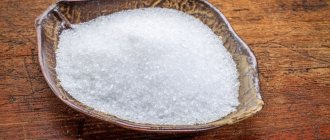- MagniuM
- Articles
- Magnesium and water for weight loss
|
|
Date of publication: 05/24/2019
The process of losing weight is inevitably associated with dietary restrictions, which often lead to a deficiency of vitamins and minerals in the body. Meanwhile, some of them, such as magnesium, promote faster weight loss. It is its lack that often leads to excess weight gain, since magnesium has unique properties and is involved in all metabolic processes. If during a diet many foods are taboo, then drinking water is not limited. Thus, a person can get magnesium for weight loss from Magnium mineral water, 3 jars of which contain the daily dose of Mg for an adult.
Water for weight loss
At the very beginning of the weight loss process, the human body gets rid of excess fluid, so if the drinking regime is not followed, the body faces dehydration. If the norm for an adult is 1.5-2 liters of water per day, then for someone losing weight the volume increases to 2.5-3 liters. In this case, you need to not just mindlessly absorb the liquid, but follow a certain regime: drink in the morning on an empty stomach, drink a glass before each meal, and do not drink much 2 hours before bedtime. You should drink it not in one gulp, but in small sips. It is worth remembering that if you don’t drink enough, the body will save incoming fluid by storing it in the cells, thereby provoking the appearance of edema and, consequently, excess weight.
In this article we will try to give a comprehensive answer to the question “How and why is water useful for weight loss?” It has many beneficial properties that help you get rid of excess weight, and the weight loss process takes place with the least stress on the nervous, digestive and other systems.
- Water is involved in the process of burning subcutaneous fat; the fat layer “melts” faster with proper fluid intake.
- Taking a glass of pure drink 20 minutes before a meal suppresses the feeling of hunger. In this way, you trick your stomach by filling it and giving it a temporary feeling of fullness, which will prevent you from eating too much during lunch and will give you the opportunity to control your appetite.
- Metabolism accelerates. Clinical studies have proven that in the absence of a deficiency of clean water, the metabolic process proceeds 30% faster. Therefore, calories obtained from food will not have time to be deposited as fat.
- The body is cleansed, it gets rid of waste and toxins, due to which, often, weight gain occurs. In addition, they harm the gastrointestinal tract and cardiovascular system.
- In addition to the effect of burning excess weight, epidermal cells are renewed. The skin becomes smoother, more elastic, tighter and younger.
- The body is saturated with vitamins and microelements such as calcium, magnesium, iron, zinc, sodium, fluorine.
- Swelling that accumulates as a water reserve disappears. The body realizes that it no longer suffers from a lack of fluid and begins to get rid of reserves.
- General well-being improves, the feeling of fatigue and depression that usually accompanies all diets disappears.
Experts have developed a special diet for the lazy, the essence of which is to comply with the drinking regime. At the same time, you do not need to follow strict dietary restrictions and exhaust yourself with physical activity.
LACTOSTASIS OR MASTITIS - WHAT TO DO AND HOW TO AVOID?
Painful lump in the breast, redness, temperature - these words frighten almost every expectant mother. And it is with these complaints that nursing mothers very often turn to specialists. The diagnosis they hear is “lactostasis” or “mastitis”. These two diagnoses are often confused and even considered synonymous. Confusion also exists in specialized literature, and even more so in the stories of nursing and breastfeeding women.
Lactostasis is stagnation of milk caused by blockage of the duct. Milk accumulates, does not come out, and bursts the “locked” lobule, causing pain. Reabsorption of milk can provoke a rise in temperature. The filled lobule compresses the surrounding tissues, this causes swelling, which further complicates the release of milk.
Mastitis is inflammation of the breast tissue . Characteristic signs of inflammation are pain, redness and temperature, although often the picture can be blurry, for example, a slight temperature. Mastitis in a nursing mother is most often the result of prolonged lactostasis (swollen, injured tissues easily become inflamed), but it can also occur without previous stagnation, due to infection (for example, through cracks in the nipple or from foci of infection inside the body, as a consequence of an acute or chronic disease).
Understanding what exactly is happening to the breasts is not as easy as it seems. This is difficult to do by eye. Lactostasis can occur with severe pain and high fever, while mastitis can occur without fever. It is not always possible to palpate a lump, especially a deep one, and a specialist cannot always differentiate for sure what kind of lump it is - a lobule full of milk, or edematous tissue, or an abscess. Ultrasound comes to the rescue today, so if you have the slightest doubt, it is advisable to undergo an ultrasound examination. Moreover, in addition to its diagnostic role, it can also help therapeutically - ultrasound often “breaks” the plug and helps cope with lactostasis.
What to do?
But the nursing mother herself is usually not interested in the complexities of diagnosis. What is more important to her is what to do in a particular situation. Does it really matter what exactly happened? Yes. Because the treatment tactics are different. And if lactostasis can most often be dealt with on your own in a day or two, then mastitis usually requires the help of a specialist and often the use of antibiotics.
So, the first day after the onset of symptoms (pain, redness, thickening, rise in temperature) most often suggests lactostasis . You can try to cope with it with the following measures:
- The first and most important thing is to empty the sore breast well.
People often think that this requires a super-master of pumping or a mega-cool breast pump. However, the best assistant in emptying the breast is a properly sucking baby. Therefore, our first remedy will be frequent feeding from the sore breast.
If the baby sucks ineffectively (incorrectly attached to the breast, weak), rarely (for example, a child of the second half of the year or older than a year may breastfeed quite rarely), additional pumping may be useful. If there is a lot of milk and the baby's sucking is not enough to solve the situation, it is better to express the milk before feeding, and leave the baby the difficult job of sucking the milk out of the problematic ducts.
- Warmth before feeding/pumping (warm shower, warm diaper on the chest) may help;
- Cold after feeding/pumping has worked well (a bag of frozen berries wrapped in a diaper, a cloth soaked in cold water);
- You can massage the lump, but carefully - a hard massage increases the swelling and worsens the situation;
- drink when thirsty, it is better to drink plain cool water (hot drinks can increase the flow of milk) Limiting drinking will not help, on the contrary, if dehydrated, the milk may become thick, and it will begin to leak out even worse;
- If there is no improvement within 24 hours, you should seek help.
What should not be done if milk stagnation occurs?
- You can't stop feeding
- It may be risky to make vodka, alcohol, camphor compresses (may worsen milk secretion, there may be burns to the skin of the breast)
- There is no need to resort to hard, traumatic “kneading” of the chest - this can lead to injury and worsening the situation.
- Don't expect spontaneous improvement. If no progress is visible within a day or two, especially if it gets worse, you need to seek help.
Who should I turn to for help ?
- In case of mastitis, a woman needs to see a doctor , mammologist or gynecologist to make a diagnosis and, if necessary, prescribe antibiotics. Antibiotics are prescribed that are compatible with breastfeeding (that is, the active substance either does not penetrate into milk or penetrates in such small doses that it has no effect on the child).
- Be sure to continue feeding from the affected breast. An exception is made in the case of purulent mastitis - during the period of discharge of pus from the ducts, it is necessary to stop feeding the affected breast and express milk; after the end of the discharge of pus, feeding resumes. With healthy breasts, feeding is not interrupted.
Minimize risk
Expectant mothers are very concerned about how this situation can be prevented. There are no guaranteed methods. It happens that despite all efforts, stagnation of milk still occurs. But you can try to minimize the risks.
- Put your baby to your breast frequently (in the first month, breaks of more than 2 hours are undesirable).
- Make sure your baby is properly attached to the breast. An incorrectly sucked baby will empty it. If you are unable to put your baby to your breast, if congestion appears in the first month, it makes sense to seek help from a lactation consultant.
- Try to drink enough water.
- Avoid chest compression (tight underwear, underwired bra, pressure from the shoulder strap of a bag, backpack or baby carrier, sleeping on your stomach can lead to congestion).
- Do not let your baby suck on anything other than the breast (sucking on nipples and pacifiers increases the risk of lactostasis).
Let all these tips remain just “general information” information and feeding will be easy and problem-free. But even at the first signs of problems, there is no need to panic - with competent actions and timely seeking qualified help, most difficulties are quickly resolved.
Health to all nursing mothers and their wonderful babies!
Anastasia Vtulova, consultant on breastfeeding and child care (Center for Natural Development and Child Health)
You can consult our breastfeeding hotline:
+7 (daily from 7.00 to 23.00).
Previous
Next
Magnesium for weight loss
This element takes part in more than 300 biochemical processes in the human body. It has a number of useful properties.
- It prevents the formation of sand and stones in the kidneys and gall bladder, and also prevents the formation of blood clots.
- Introduces toxins, cholesterol, bile and waste.
- Accelerates tissue regeneration processes.
- Promotes the removal of the hormone adrenaline, which is intensively produced in stressful situations.
- Strengthens the nervous system.
- Stimulates the growth of muscle tissue.
- Activates intestinal function.
- Regulates blood glucose levels.
- Dilates blood vessels.
In addition to all these functions, magnesium promotes fat burning and prevents its formation.
Sources of magnesium include foods such as pumpkin or sunflower seeds, sesame seeds, dark chocolate, nuts and peanuts. But for people trying to lose weight, such products are not advisable to consume because of their high calorie content. For example, 100 grams of pumpkin seeds contain 559 kcal and two daily norms of magnesium, sunflower seeds – 580 kcal and also two norms of Mg. The calorie content of peanuts, almonds, cashews, and hazelnuts exceeds 500 kcal.
Therefore, you can saturate the body with magnesium during a diet through the use of special medications or by taking Magnium mineral water enriched with magnesium.
Answers on questions. Borovkova E.I.
Ekaterina Igorevna Borovkova , professor:
– What is the most effective use of magnesium during pregnancy, as a tocolytic or for nutritional support and balanced nutrition? Thanks for the question, but there are two completely different indications for prescribing magnesium supplements. That is, if the threat of premature birth develops, we prescribe magnesium preparations for tocolysis and use them only in the form of intravenous infusions. If we want to replenish the patient’s diet and supplement it with magnesium preparations, then we will use tablet forms of the drug and we will achieve the necessary desired effectiveness with you. Accordingly, the effective use of magnesium preparations in parenteral forms has been proven for acute and massive tocolysis, and the effectiveness of the use of magnesium preparations in tablet form has been proven for the prevention of preeclampsia, for the prevention and treatment of threatened miscarriage, and for nutritional support in patients with obesity and gestational diabetes.
What dosage of magnesium is preventative? Preventive, according to available studies, including studies from 33 countries - from 300 to 500 milligrams of magnesium were prescribed per day in tablet form and the drug was shown to be highly effective. In accordance with this, it is recommended to use an average daily dose, which we calculate from the mass of patients. On average, this is about 300-400 milligrams of magnesium, depending on weight. If we talk about magnesium preparations, which we most widely use, then in Russia the most common use of Magne B6 preparations is due to the fact that it also contains pyridoxine, which also has a beneficial effect on the course of pregnancy. So, when using Magne B6 drugs, we recommend using Magne B6 Forte, since by prescribing only 3 tablets per day, we achieve exactly the daily required dosage. If you use Magne B6 simply, you need to use 4 to 6 tablets. Another very important note: Magne B6 Forte contains magnesium citrate. The use of citrate forms improves absorption, improves the stabilization of certain metabolic processes, and restores the sensitivity of insulin receptors.
Is it possible to take magnesium throughout pregnancy, are there any contraindications? Individual intolerance may be one of the contraindications. When prescribing drugs in daily dosages, as a rule, we do not achieve any overdoses and, in general, side effects are practically not pronounced. But any medicine that we prescribe during pregnancy must be justified. That is, we cannot just give you a magnesium drug just like that. That is, if a woman is at risk for developing preeclampsia, we substantiate this in history and can prescribe her magnesium supplements. If the patient has a history and recurrent miscarriage, we can also prescribe it throughout her pregnancy in order to prevent miscarriage or premature birth. However, prescribing drugs parenterally requires mandatory monitoring of diuresis, respiratory rate and knee reflex, since we can cause an overdose of magnesium, and an overdose is possible only when prescribing magnesium parenterally. That is, tablet forms will not lead to an overdose of magnesium.
Can magnesium deficiency in a woman’s body be considered the central cause of chronic miscarriage? I think not. It is possible that magnesium deficiency can contribute to the manifestation of miscarriage, but, of course, throughout the world it is believed that the main causes of miscarriage, that is, termination of pregnancy in the early stages, are infectious pathology, gene and chromosomal abnormalities and endocrine pathologies. These are the main reasons, but not magnesium deficiency. Although he can, of course, join them and aggravate the situation.
Should magnesium supplements be included in the list of therapeutic recommendations for metabolic syndrome? Yes. And such recommendations already exist abroad. And all patients who are undergoing therapy for obesity or with identified metabolic syndrome, they, as a rule, being on a certain limited diet, are required to receive multivitamin preparations, which also include magnesium, including in small dosages, but present. To prescribe magnesium preparations separately in the treatment of patients with metabolic syndrome - I have not seen such studies that such drugs were prescribed separately, but if we talk about pregnant patients with metabolic syndrome, then for such patients we actually prescribe magnesium preparations separately from multivitamins, but not so much how much for therapy and correction of metabolic abnormalities, and how much to prevent the worsening development of insulin resistance, to prevent and reduce the likelihood of premature birth or preeclampsia. Because women with metabolic syndrome develop placental insufficiency in more than 80% of cases, preeclampsia in 50%, premature birth in about 62%, that is, these are patients at great risk of developing these complications.
Pregnancy has been turned into a disease. Does everyone really need that much medicine? Thanks for this question! You know, when treating pregnant patients, I always tell them that pregnancy is not a disease. That is, almost all patients who do not have any serious extragenital diseases are treated with minimal medications. Fortunately, according to the order, which is also valid and effective in Russia, during pregnancy we prescribe no more than 4 medications at a time, which include multivitamins. That is, if we prescribe a multivitamin and magnesium supplements, then for medications we will only have 2 drugs left. Therefore, of course, no, there is no need for extra medications. And all the drugs that we prescribe are based on strict indications.
If the daily requirement for calcium covers one glass of milk, then which product contains the daily requirement of magnesium? This is very conditionally about calcium, this test program was developed in the USA, and they tested it according to a glass of milk to simplify the identification of patients who do not receive enough calcium. With magnesium, everything is more complicated, because it is very difficult to estimate the concentration of magnesium even in the human body, because, in general, it is contained in so many protein structures, and it is difficult to say which product. I find it difficult to answer.
Vladimir Trofimovich Ivashkin , academician of the Russian Academy of Medical Sciences, Doctor of Medical Sciences:
- It's probably a bunch of parsley.
Borovkova E.I.:
– Not only that, but also dairy products.
Elena Sergeevna Akarachkova , Doctor of Medical Sciences:
– Goat milk covers the daily requirement of magnesium. But goat milk must be fresh.
Borovkova E.I.:
– And will it be absorbed in the intestines? Is there any intolerance? In principle, with a balanced diet, if the patient receives enough protein and carbohydrates, she will, in theory, receive the necessary dose of magnesium. Another thing is that during pregnancy the concentration of magnesium in the uterus must increase a thousandfold in order for it to be in a relaxed state. In this regard, the general recommendations are such that we prescribe an additional magnesium agent either as part of a multivitamin or as part of a single preparation. Thank you very much for this question.
Ivashkin V.T.:
– Thank you very much, Ekaterina Igorevna, that you, from the position of high science, illuminated a process known to mankind for centuries. This is the first one. And secondly, remember how one of Moliere’s heroes “The Bourgeois in the Nobility” learned with surprise that he had been speaking in prose all his life? Today we learned another important truth: after all, pregnancy is not a disease. Amazing! This is generally a great achievement for today. Well, thank you very much, indeed, because so many questions indicate that, indeed, this topic is inexhaustible.
"Magnium" for weight loss
Mineral water, produced under the Magnium brand, is a drink artificially enriched with microelements. This is the latest development of domestic scientists, which today has all the necessary certificates and permits. Recently, Magnium has become increasingly popular among consumers, especially among people who want to lose weight and athletes. The demand for this drink is explained by its wide range of effects on the entire body.
- Regulates blood sugar levels and promotes glucose absorption.
- Helps with the breakdown of fats, affecting subcutaneous fat cells from the inside.
- Speeds up all metabolic processes.
- It has a cleansing effect on all tissues and organs.
- Has a positive effect on the stomach and intestines.
- Normalizes blood pressure.
- Calms the nervous system.
- Promotes cell renewal.
- Strengthens hair, nails, teeth.
Another advantage of mineral water is the absence of contraindications for use (except for hypermagnesemia). Besides, as everyone knows, water contains no calories. Thanks to this, the intake of Magnium throughout the day can be unlimited.
The uniqueness of Magnium mineral water lies in its composition, which includes magnesium citrate. Entering the body in this form, the mineral is absorbed 100%, after which the magnesium citrate molecule breaks down into water and carbon dioxide.
Drinking this drink is recommended not only for people who want to lose extra pounds, but also for professional athletes. They need an increased dose of micronutrients for accelerated muscle growth.
Lose weight with Magnium! Find out more →
Rules for taking water for weight loss
We have already figured out whether water is good for the fat burning process. But for this technique to be effective, certain rules must be followed. If you thoughtlessly take liquid in large quantities, it is unlikely that water to combat obesity will have a positive effect on the body.
Quantity
The first question that arises when establishing a drinking regime is how much fluid you need to drink throughout the day. Nutritionists and other specialists most often call the volume equal to 1.5-2 liters, but such data is not entirely correct. The amount of drink you need to drink throughout the day depends on the person’s weight. The volume can be calculated based on the generally accepted formula, according to which 1 kilogram of a person’s weight should account for 30 ml of drink. For example, with a weight of 70 kg the norm will be 2.1 liters. But if a person losing weight weighs 150 kg, his norm will be 4.5 liters. This volume is excessive. Therefore, it is worth following one rule.
It is not recommended to consume more than three liters of water per day. Tea, juice and other drinks do not count as they are high-calorie liquids.
A sharp increase in water consumption will have a negative impact on the kidneys and genitourinary system, which will be forced to work in emergency mode. Organs that are not accustomed to such “water” loads can fail, which can lead to nausea, heaviness in the stomach and swelling.
You need to start the regimen with 1.5 liters per day, gradually increasing the dosage.
Time
There are several mandatory periods of time for drinking.
The first glass should be drunk in small sips on an empty stomach after sleep and before brushing your teeth. Drinking a drink at this time performs several tasks at once:
- awakening the body;
- removal of waste, toxins, cholesterol;
- starting metabolism.
Half an hour after your morning glass, you can start breakfast.
Further doses are required before each meal, regardless of whether it is a full lunch or a light snack. In this way, we can give the stomach a temporary false feeling of fullness, which will suppress appetite and prevent us from eating too much. You need to drink liquid 20 minutes before meals.
You should not drink immediately after eating, otherwise your stomach will stretch and ask for large portions of food.
If you engage in active sports, then do not forget to drink water during exercise. Here you should not abuse large quantities; during the lesson you only need to drink a few sips. If you drink too much, water will not help in burning fat, but will contribute to excessive sweating and heaviness in the stomach. But after training, you can already drink a couple of glasses, the effect of which will be aimed precisely at speeding up metabolism and burning fat.
It is not recommended to drink 1-2 hours before bedtime, since drinking any liquid at night can lead to morning swelling.
Temperature
A drink of any temperature has certain benefits, so here we have freedom of choice.
- Hot water will speed up metabolic processes and prepare the digestive system for food intake. Contraindications to drinking a hot drink are diseases of the gastrointestinal tract.
- Cold water is recommended specifically for weight loss, since after it the body tries to “warm up”, thereby expending energy.
- Slightly warm or room temperature liquid does not cause stress to the body, therefore it is recommended by doctors.
To lose weight, you should not drink tap or boiled water. When boiled, when it reaches the boiling point, it loses a lot of useful elements, and liquid from the tap is rarely clean and healthy enough.
To successfully lose weight, you need to drink filtered, pure water from a source or mineral water.
Water with additives
To combat excess weight, you can add various additives to water that speed up metabolism. You can add to a glass of drink:
- a teaspoon of cinnamon powder (water at room temperature);
- a whisper of soda (hot);
- juice of a third of a lemon (warm);
- a teaspoon of apple cider vinegar and honey (at room temperature);
- a pinch of crushed ginger root (in boiling water, let it brew for 2 hours).
These additives should be used with extreme caution. Despite the weight loss effect, they have a negative effect on the gastrointestinal tract, therefore they are contraindicated for diseases of the digestive system.
MAGNESIUM SULPHATE (powder)
An acetic with 20 grams of the substance costs from 20 to 100 rubles, it varies everywhere.
I bought my package for 66 rubles. Ordinary paper packaging, everything is modest, accessible, but this is not the most important thing, the main thing here is the effect.
Magnesia must be taken correctly, you can’t just throw in your 20 g (and sometimes 40, depending on what kind of body someone has, for some 15 g is enough, and for others two bags are needed, only experience will show, for some magnesia does not work at all , there are cases when you either took it incorrectly, or vomiting happened because of the drug) and wait for miracles.
It is important to drink the powder dissolved in water on an empty stomach, because if there is food in the stomach, the substance will enter the intestines in portions, not immediately, and then there will be no effect. In addition, it is not advisable to drink magnesium before bed - it’s easy to guess that you can’t expect any sleep, because the night will be spent running to the bathroom and back.
There are many indications for taking magnesium sulfate, but in the end they all boil down to one thing: cleaning from the inside. Of course, you should not overuse magnesium. There are people who try to lose weight on it, taking the drug for no reason, thereby causing dehydration, disruption of microflora, making the intestines lazy. I believe that magnesium can be taken once every two to three months maximum, and then only if there are good reasons.
Yes, magnesium can easily cope with constipation, but it will not eliminate the cause. There is an effect, and it is very fast. Now I’ll tell you how everything happens.
We dilute the powder, similar to sugar, in one hundred milliliters of water and drink it. Then every 20-30 minutes we drink a glass of water. After about an hour and a half, we run to the toilet, and after each visit we drink another 250 ml of water. This is done so that there is something to remove from the intestines what is in it. In 5-6 times all unnecessary reserves and deposits will be released. That is, you will have to drink a lot and visit the pensive room often.
In appearance, magnesium sulfate is very similar to sugar crystals, but the similarity is very deceptive in both action and taste.
It dissolves well in water, does not leave sediment, the result is simple water, only bitter, quinine. Brrr...
As a result, you can (and should) see clean water, which means that the intestines are as clean as magnesium can cleanse, and believe me, it can do a lot :)
In short, taking magnesium sulfate before work/date/travel/sleep is out of the question. Only at home and only with the right attitude. And then you can safely go hungry.
Magnesia is terribly bitter, simply unbearably bitter, it is not easy to drink, especially for the first time. It feels like you’re going to vomit or your taste buds are going to fail, but you’re allowed to snack on a slice of lemon while drinking or somehow brighten up the sensation with lemon juice. I've never done this, but I've read that many people do it.
The product is very effective. I used magnesium sulfate three times, and the same thing happened three times, without fail.
I can recommend this drug as very effective, but unsafe. You should remember about contraindications; nevertheless, such a shock agent cannot be used thoughtlessly, often or without a compelling reason. I give it four points. I’ll definitely write a review about my fasting later.











